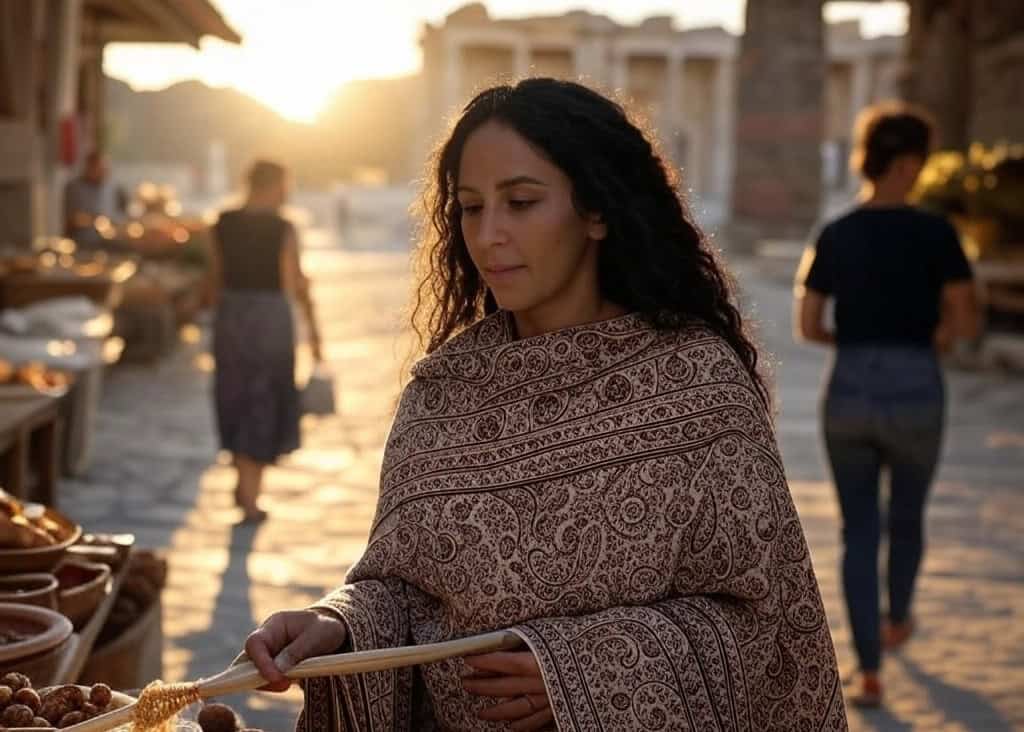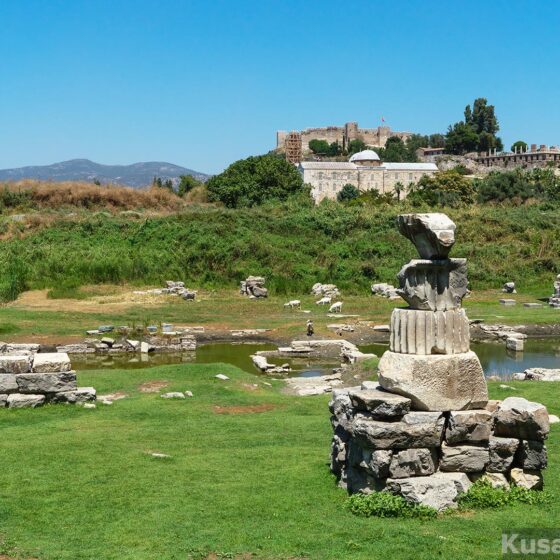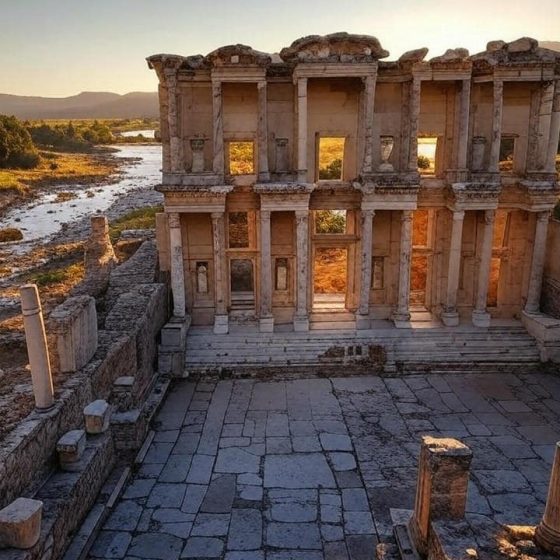Table of Contents Show
Ephesus was one of the most important cities of the ancient world, a centre of trade, politics, and culture. But what was life like for women in this great city? Were they confined to household duties, or did they hold power in society? Did they influence business, religion, and public life?
Unlike many other ancient cities, women in Ephesus had more freedom and opportunities than those in Athens or Rome. Inscriptions, historical records, and archaeological evidence show that women in Ephesus were involved in commerce, religious leadership, and even politics. Some were priestesses of Artemis, while others were wealthy merchants, landowners, and businesswomen who left their mark on history.
Women in Business and Trade
Ephesus was a major trade hub, connecting the Aegean to Asia Minor. With a bustling marketplace and thriving port, business opportunities were everywhere, and women played a larger role in commerce than in many other parts of the ancient world.
Did women own businesses? Yes. Inscriptions found in Ephesus show records of women as merchants, shop owners, and property investors. Some women managed textile workshops, producing fine fabrics sold across the Mediterranean. Others ran taverns, bathhouses, and even shipping businesses.
One inscription speaks of a woman named Tatia, who was a wealthy landowner and businesswoman. She owned multiple properties and financed the construction of a public fountain, proving that some women accumulated wealth and status.

Women and Religion: The Power of Artemis Priestesses
Ephesus was home to the Temple of Artemis, one of the Seven Wonders of the Ancient World. Artemis was the most revered goddess in the region, and her priestesses held significant power. These women oversaw religious rituals, controlled temple finances, and influenced political decisions.
Artemis was worshipped as a protector of women, fertility, and nature, and her followers included both the elite and the poor. The priestesses of Artemis were among the most powerful women in the city, some coming from noble families. They lived within the temple complex, oversaw major religious festivals, and managed offerings brought by traders and pilgrims.
Unlike other religious roles in the Greek world, being a priestess of Artemis in Ephesus was not just a spiritual duty—it was also a political position. Some priestesses acted as advisors to city officials, showing that religion and politics were closely linked.
Women in Family and Social Life
Women in Ephesus had more rights than their Athenian counterparts but fewer than Roman women. They could own property, inherit wealth, and make business contracts, but they were still expected to manage households and raise families.
Marriage was important in Ephesus, and elite women often married men involved in politics or trade. However, some women remained independent. Widows, in particular, had more legal rights and could control their own wealth.
Public inscriptions mention women sponsoring public baths, fountains, and statues, which suggests they played a role in civic life. Some women even sponsored games and gladiator contests, showing that they had both wealth and social influence.
Women in Politics and Public Influence
While women could not hold official government positions, wealthy and influential women still found ways to shape politics. Some used their family connections to influence decisions behind the scenes. Others gained respect by sponsoring public works or donating money to the city.
One example is Flavia Papiana, a woman whose name appears on inscriptions thanking her for funding the construction of buildings in Ephesus. Though she had no official title, her financial power gave her influence in the city’s development.
The Changing Role of Women Under Rome
When the Romans took control of Ephesus, the rights of women expanded further. Roman women had more legal freedom than Greek women, and this influence spread to Ephesus.
Roman law allowed women to inherit property, manage businesses, and act as legal guardians, giving them more control over their own lives. Wealthy Roman women in Ephesus funded temples, sponsored public events, and owned large estates.
One of the most famous Roman women linked to Ephesus was Livia Drusilla, the wife of Emperor Augustus. She was deeply involved in politics and religious life, and her influence spread throughout the empire. Her image appeared on coins, and she was honored in temples across the region, including in Ephesus.
Legacy of Women in Ephesus
Women in Ephesus were not passive figures in history. They were merchants, priestesses, landowners, and influencers, shaping the city in ways often overlooked. While men dominated politics, women found power in business, religion, and wealth, leaving behind a legacy carved in stone and recorded in ancient texts.
The ruins of Ephesus still hold traces of their presence, from inscriptions honoring their contributions to the remains of the Temple of Artemis, where women once played a central role in worship and governance.
• What rights did women have in ancient Ephesus?
• Were women allowed to run businesses in Ephesus?
• What was the role of Artemis priestesses in Ephesus?
• How did Roman rule change women’s rights in Ephesus?
Last updated on February 16, 2025



